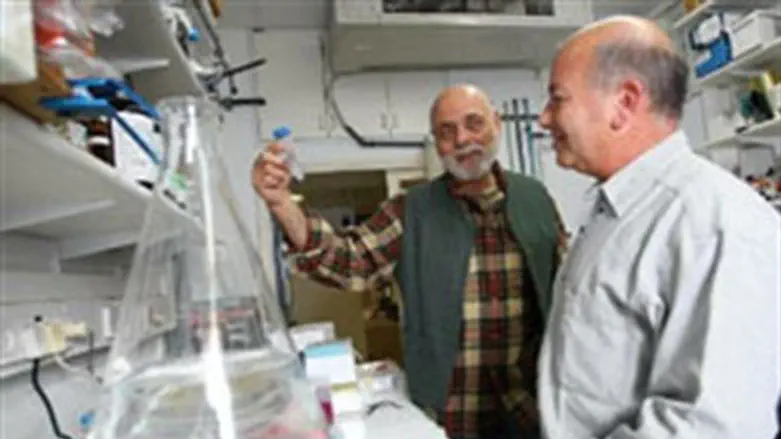
Two Israeli-based companies are trying out a peptide aimed at stopping Type 1 diabetes at its source and eliminate the need for insulin injections.
The “DiaPep277” project by Teva Pharmaceutical Industries and Clal Biotechnology Industries is now in advanced clinical trials in more than 100 medical centers on four continents.
Teva owns the license and worldwide market rights to DiaPep277, a trademarked peptide first synthesized in 1994 by Prof. Irun Cohen at Israel's Weizmann Institute of Science. This synthetic peptide – a chemical link extracted from a long protein chain – seems to halt the progression of this form of the disease, which used to be called "juvenile" diabetes.
Both Type 1 and Type 2 diabetes result from problems with insulin, a hormone produced by the pancreas to convert sugar, starches and other foods into energy for all the body's functions. Type 1, accounting for about five percent of the estimated 220 million worldwide cases of diabetes, is caused by an abnormal immune response that kills the insulin-producing beta cells in the pancreas.
Patients take daily insulin injections because no one has yet found a way to address the root cause of this serious immune system foul-up.
"There have been many approaches to try to treat this disease, because it's very complicated -- partly genetic and partly environmental," explains Shlomo Dagan, CEO of Andromeda Biotech, the Yavne-based company developing DiaPep277. "The immune system itself is very complicated and we still do not understand its full mechanism of action."
The goal of the new weapon against diabetes “is preservation rather than treatment," Dagan says. "If you still have some [insulin-producing] cells left functioning, we can preserve them with this substance."
Teva holds the remaining 16 percent of Andromeda.
Diabetes patients aged 16 to 45 have been receiving DiaPep277 injections once every three months since 2005 in the first Phase III studies conducted at 40 medical centers in Europe, South Africa and Israel. The subjects are tested regularly over a two-year period to measure their ability to secrete insulin, and the study will conclude in a few months.
Last year, Andromeda began the confirmatory Phase III trials concentrating on patients ages 20-45 within six months of diagnosis. Dagan explains that two independent studies are necessary in order to win regulatory approval, and this second trial also will allow researchers to evaluate differences between results in teens and adults. The newer study is going on at hospitals in Israel, three Canadian provinces, several American states, and in Europe and Eastern Europe.
The formal conclusion of the second study is targeted for early 2014, and the product is several years away from pharmacy shelves, if it reaches that stage.